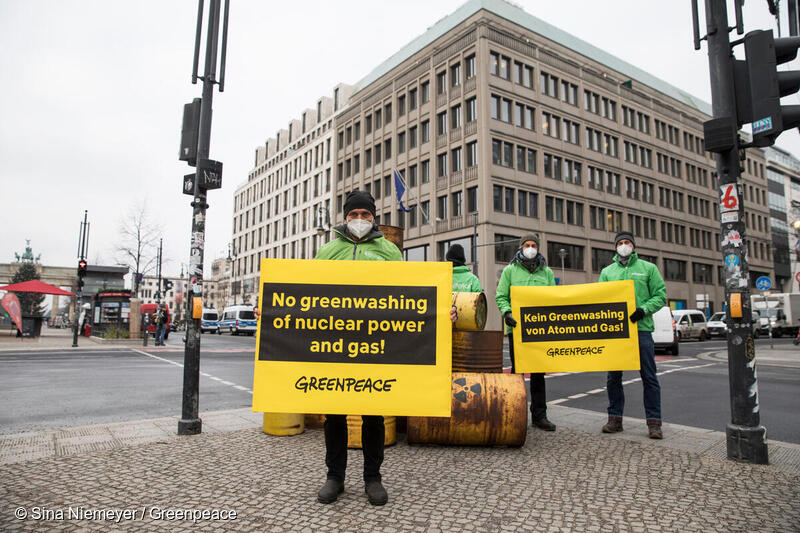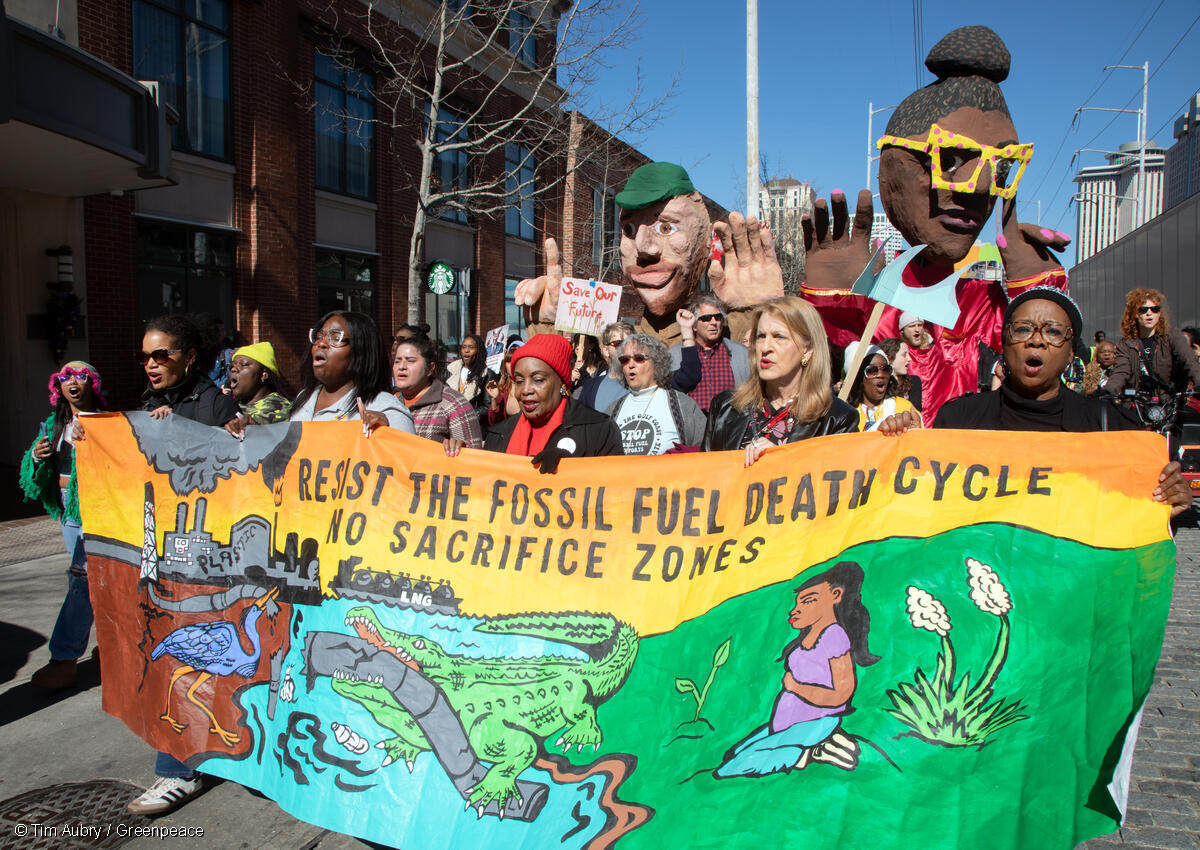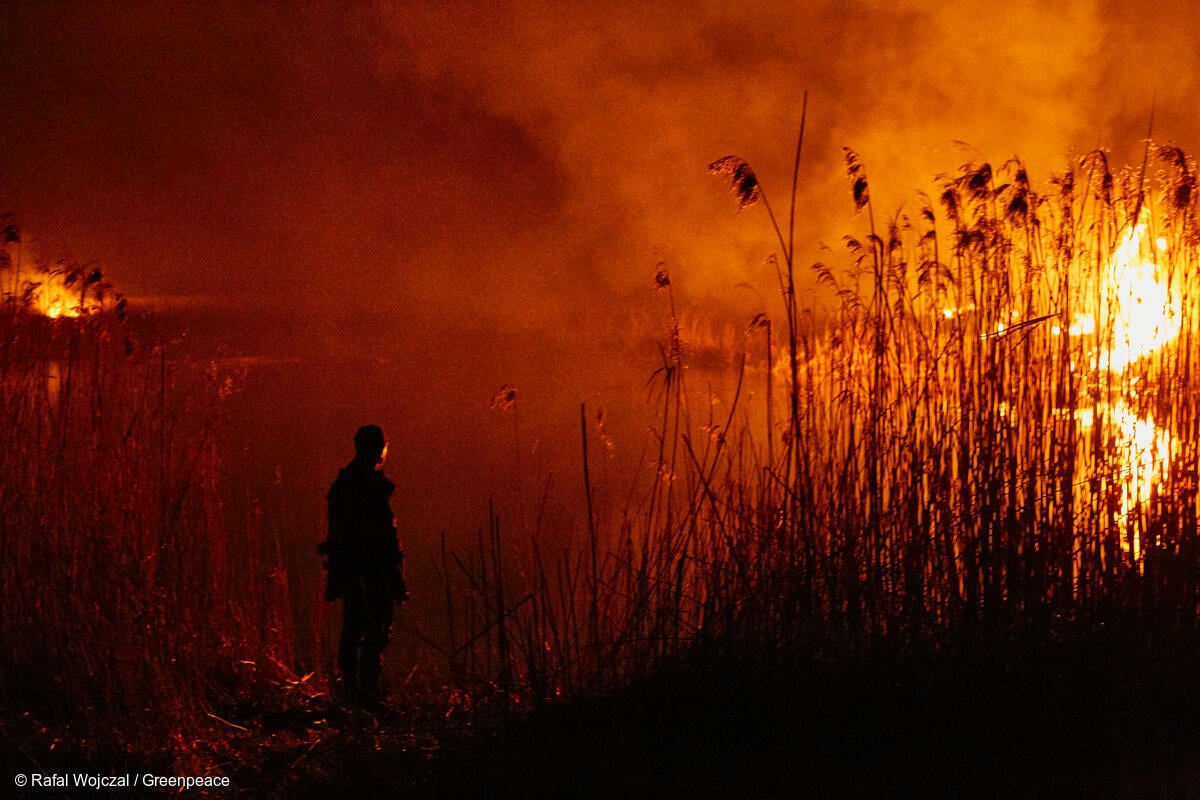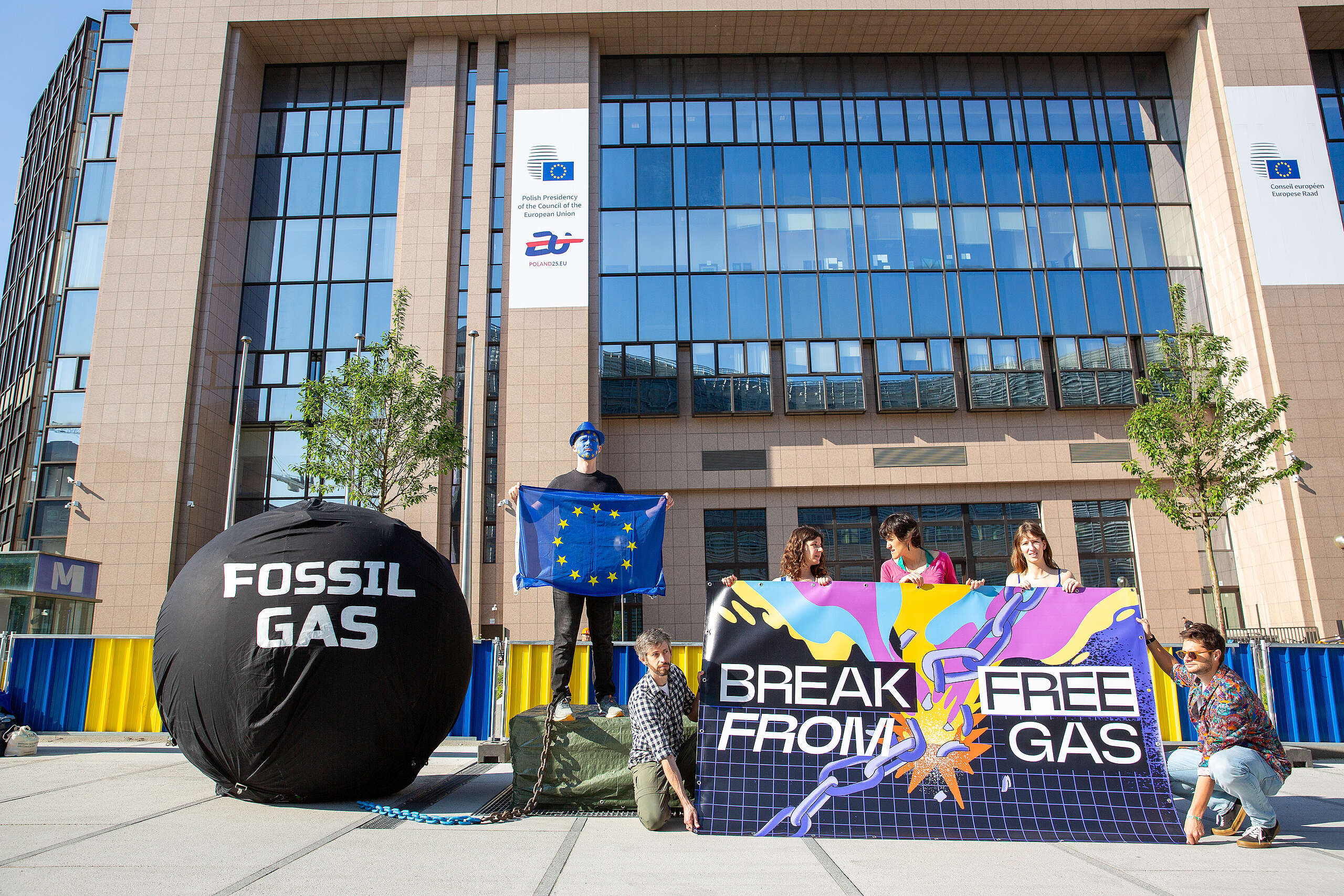
Brussels, 19 September 2022 – Eight Greenpeace organisations are taking legal action and challenging the inclusion of fossil gas and nuclear energy in the EU’s list of sustainable investments, the taxonomy. The European Commission decided to add these polluting technologies to the taxonomy in January this year, and the European Parliament failed to object in a vote in July, despite widespread opposition from EU citizens, climate scientists, financial institutions and environmental organisations.
On 8 September, Greenpeace Germany, France, Spain, Italy, Belgium, Luxembourg, Central and Eastern Europe and the Greenpeace European Unit sent a formal request for internal review to the Commission. Greenpeace argues that the inclusion of gas and nuclear in the taxonomy violates the taxonomy regulation, the European Climate Law, and the EU’s obligations under the 2015 Paris Agreement.
The Commission has until February to review Greenpeace’s arguments and to reply. The Commission may agree with Greenpeace’s arguments and withdraw the complementary delegated act which added gas and nuclear to the taxonomy. If not, Greenpeace will take the case to the European Court of Justice.
Greenpeace EU sustainable finance campaigner Ariadna Rodrigo said: “This fake green label is incompatible with EU environment and climate laws. Gas is a leading cause of climate and economic chaos, while there is still no solution to the problem of nuclear radioactive waste and the risk of nuclear accidents is far too significant to ignore. Furthermore, this winter we will face an energy crisis, and people will struggle with their energy bills. We are outraged that the same people that caused the climate and energy crisis, are the same ones profiting from it, while people are suffering. The European Commission has a play in this and got its hands dirty with labelling gas and nuclear green. The greenwashing of fossil gas and nuclear was politically motivated from the beginning, but that won’t help the European Commission in court.”
Calling gas sustainable denies fundamental climate science. At the moment, gas is the highest emitter in the power sector in Europe, and the International Energy Agency has warned that new gas plants will put the Paris goals out of reach.
Nuclear power creates dangerous nuclear waste and uses vast amounts of fresh water with a devastating negative impact on biodiversity and nature. In addition, the unreasonably long construction processes (10 to 19 years) and the ever increasing costs of nuclear power plants make it absolutely clear that we cannot rely on nuclear energy as a solution to the climate crisis.
An accelerated energy transition based on renewable energy and energy savings is the way to solve the climate and energy crisis, and the taxonomy should be channelling sustainable funds to these only.
Note to editors:
Greenpeace is working with lawyer Roda Verheyen who played a leading role in the successful constitutional complaint against Germany’s 2019 Climate Protection Law, co-initiated by Greenpeace Germany. That case resulted in a German Constitutional Court ruling which found the 2019 Law to be partially unconstitutional and ordered the government to bring the Law into line with the Paris Agreement.
Roda Verheyen is available for questions and interviews about Greenpeace’s legal challenge against the addition of gas and nuclear to the EU taxonomy. To schedule an interview please call +49 (0) 171-8780830 or contact [email protected].
Contacts:
Ariadna Rodrigo, Greenpeace EU sustainable finance campaigner: +32 (0)479 99 69 22, [email protected]
Greenpeace EU press desk: +32 (0)2 274 1911, [email protected]
For breaking news and comment on EU affairs: www.twitter.com/GreenpeaceEU
Greenpeace is an independent global campaigning network that acts to change attitudes and behaviour, to protect and conserve the environment and to promote peace. We do not accept donations from governments, the EU, businesses or political parties. Greenpeace has over three million supporters, and 26 independent national and regional organisations with offices in more than 55 countries.
EU Transparency Register: 9832909575-41



